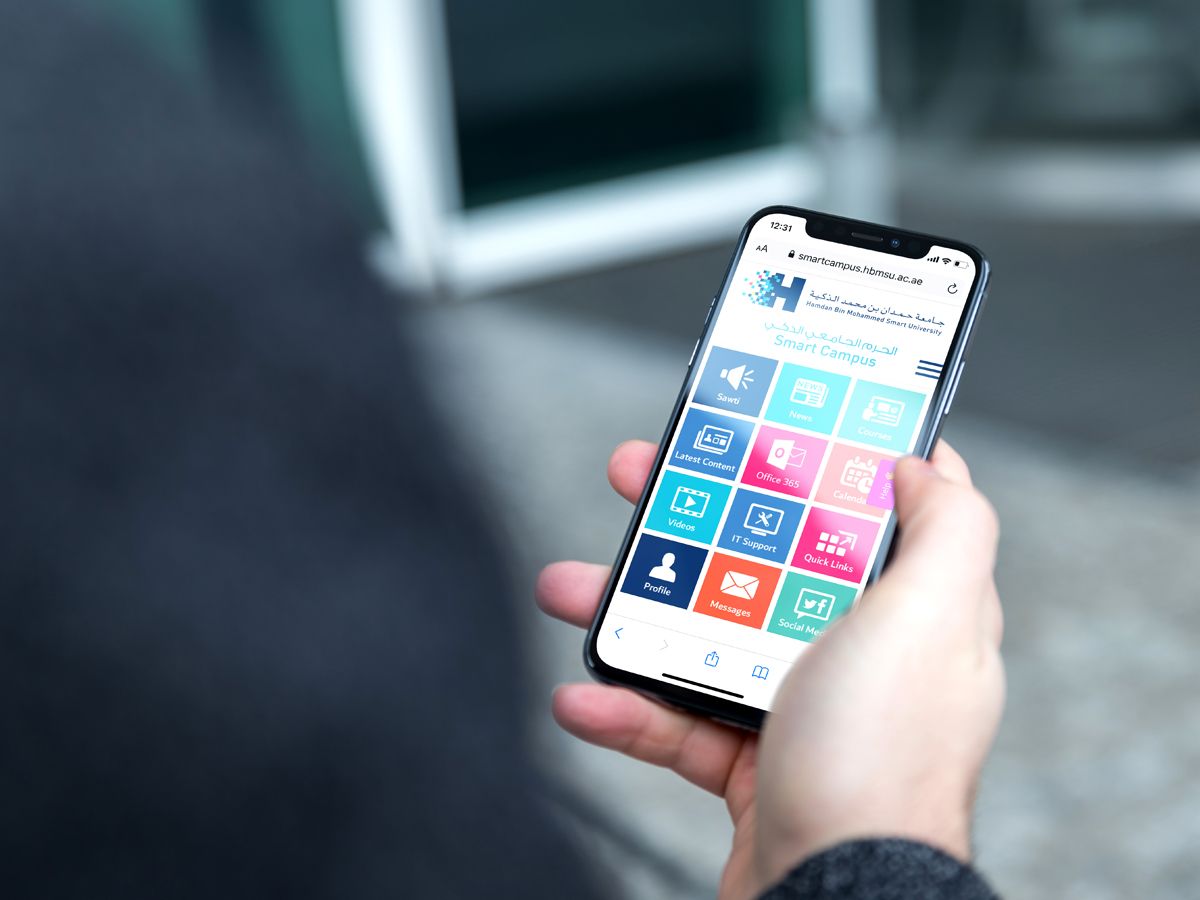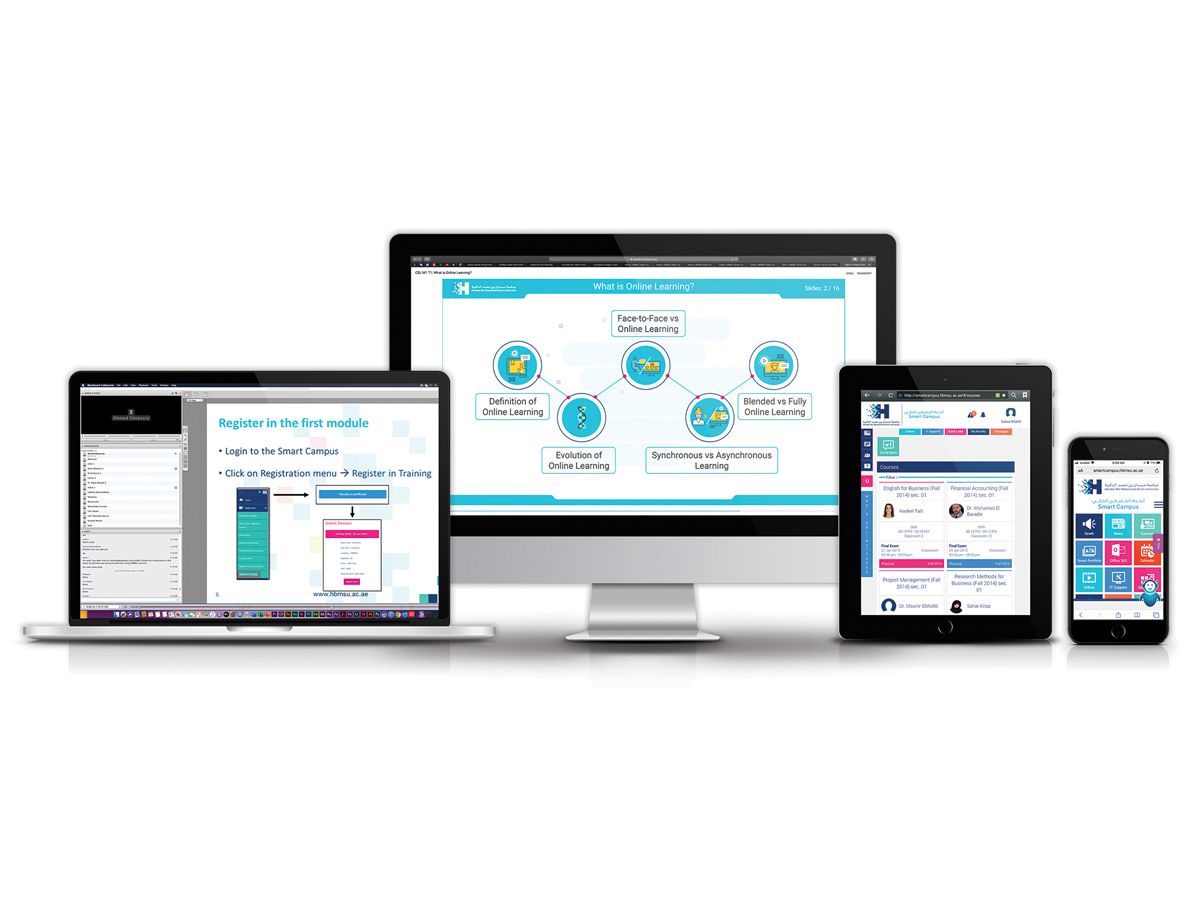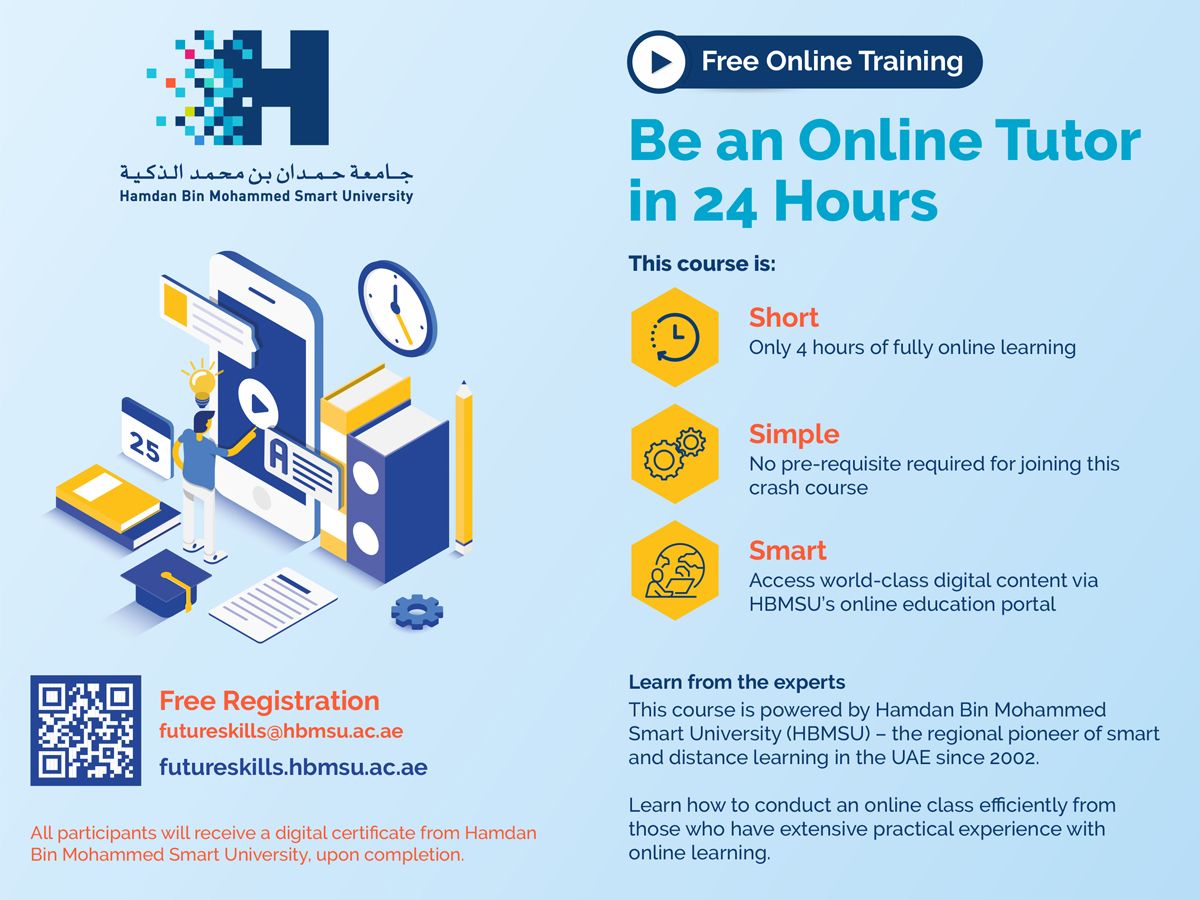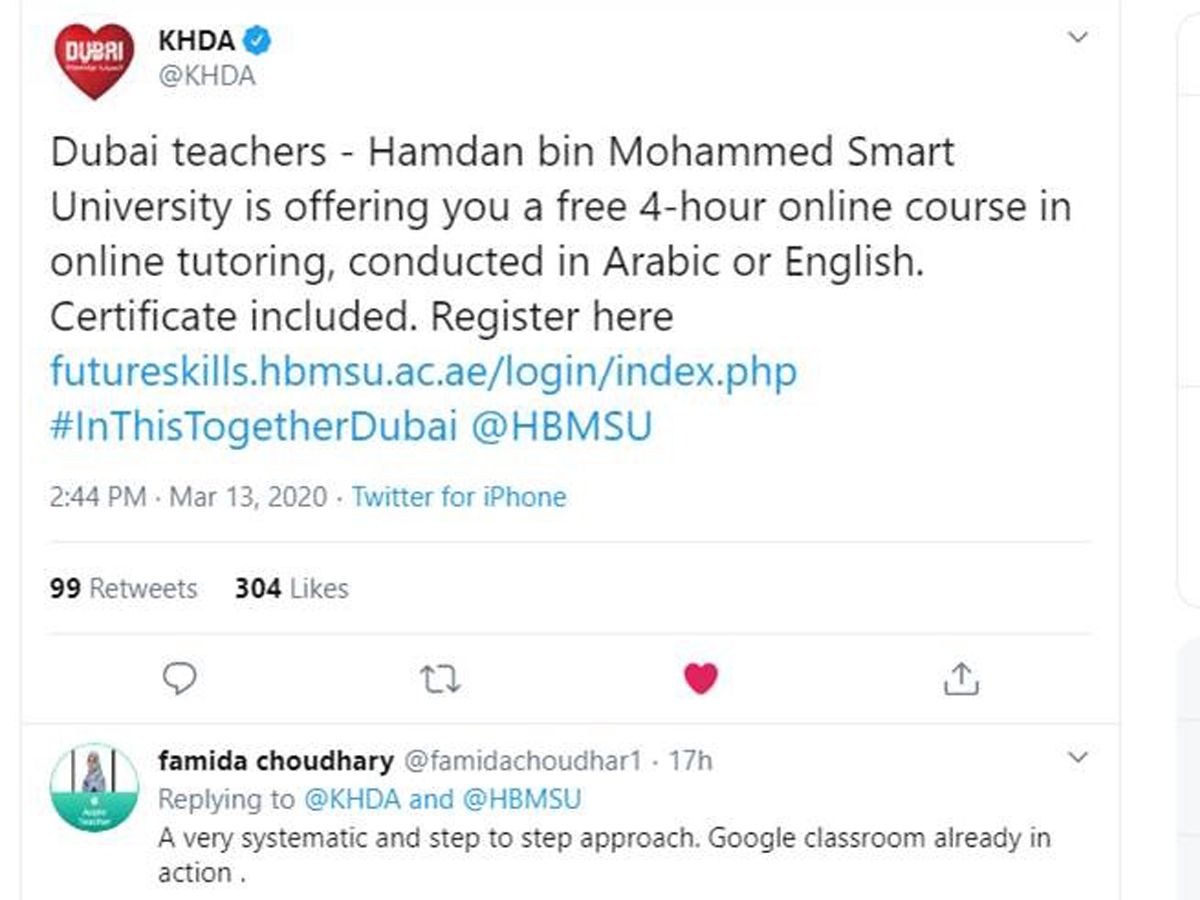
Are online learning models set to elbow out physical classrooms in the same way as email replaced the postcard? The tremendous uptake in such models indicates that the future could see e-learning take its place alongside traditional teaching methods, and in the process, transform education as we know it. What that means for teachers and university and school students in the UAE will become apparent over the course of the next few weeks, as the country embraces distance learning in view of the recent developments in the region.
Educational institutions across the country will conduct distance learning activities from March 22 to April 2, in line with directives from the UAE Ministry of Education. While schools and universities have embraced a blend of tools such as e-learning apps and online lectures for some years now, the de facto two-week experiment will offer the opportunity for students, parents and educational professionals alike to understand just how truly immersive online learning can be, and to equip themselves accordingly.
Private schools and higher education institutions have been given the freedom to implement the distance education programme as they see fit, although a particular focus of the trial will be asynchronous learning – where coursework is delivered by web, email, or online message boards, and students learn at their own pace.
But the UAE is no stranger to distance learning, with an education system that has evolved away from rote learning to a focus on fostering innovation and creativity. As the UAE has pivoted towards a knowledge economy, students have been put in charge of their own learning, with blended and online courses becoming increasingly common.
“We are looking at reshaping higher education by empowering learners and steering them away from the traditional education model that no longer meets the modern demand,” says Dr Mansoor Al Awar, Chancellor of the Hamdan Bin Mohammed Smart University (HBMSU), the first e-university in the UAE, established in 2002. Its working model focuses on a blend of face-to-face classrooms, online classrooms, and self-paced learning, and has paved the way for the UAE Ministry of Education to design standards for accreditation for an e-learning institution.
He says online learning programmes such as those offered at HBMSU must create new learning environments that focuses on building intellectual capacity and developing analytical skills.
Fastest-growing sector
Overall, online learning is one of the fastest-growing segments of higher education, expanding at a compounded annual growth rate of 7.2 per cent, Adroit Market Research data indicates. While specific data for the UAE is not available, globally the segment is projected to be worth $325 billion (Dh1,170 billion) by 2025, a ten-fold growth from $32 billion in 2010. In fact, management guru and Harvard Business School professor Clayton Christensen, who is considered the father of the theory of disruptive innovation, predicts in his book, The Online University, that half of all traditional colleges will have ceased to exist by 2025.

The switch will occur as students begin to understand the benefits of online and blended learning courses. Lessons delivered over the internet are more accessibly priced, while students do not need to pay for associated costs such as commuting or visa fees. In many ways, online learning primes students for the world of work. Instead of structured routine focused on attendance and paying attention in class, learning takes place in smaller, flexible units designed to help accomplish individual goals.
Students are in control of their own schedules, allowing them to mix and match their course load and learn at their own pace and time while simultaneously offering the space for other commitments, such as acquiring work experience.

Other benefits include increased instructor-student interaction, a broader range of networking opportunities, better documentation and improved access to remote expertise. Overall, students who follow online courses anecdotally report better confidence, improved self-discipline, and a greater sense of responsibility.
Amna Al Ali followed a blended learning model for her master’s degree in organizational excellence, and says she has benefited tremendously from the approach. “HBMSU has enabled us to enter strongly into the job market, equipped with the smart education model that is still being tested in many academic institutions around the world.”
Upskilling for better prospects
As an adult learner looking to upskill and improve her career prospects, Al Ali is typical of the contemporary consumer of online learning courses.

HBMSU is committed to make a positive difference in the lives of people through smart education and lifelong learning.
Longer life expectancy coupled with the wide impact of new-age technologies such as robotics and artificial intelligence will see people embrace up to five careers over the course of their lifetimes. “HBMSU is committed to make a positive difference in the lives of people through smart education and lifelong learning,” says Al Awar.
With distance no barrier to education, students in the UAE and elsewhere will benefit from its pioneering approach.

Course in online teaching
Alongside, educators will also need to reorient their approach. HBMSU is making its extensive practical experience with online learning available to UAE education professionals in view of the government’s initiatives. The university is now offering a free crash course on how to become an online tutor in 24 hours to help teachers and instructors who wish to re-design their class to make better use of educational technology.

More information about the programme is available on Hbmsu.ac.ae




